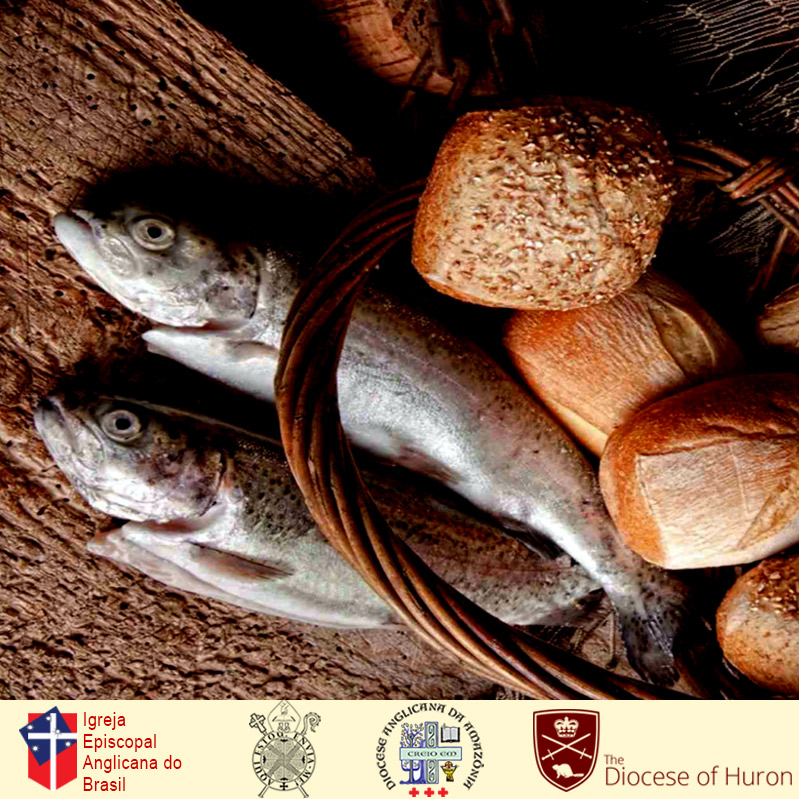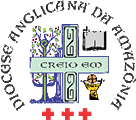Notícias Diversas
Pandemia na Amazônia: Pão e Peixe se multiplicam

Fé, esperança e doação, são algumas das maneiras que as pessoas aqui em Belém encontraram para trazer cura e esperança para elas e seus vizinhos. Algumas criaram sua própria maneira de lidar com esta pandemia (COVID19) sem abalar sua própria estrutura mental, física e religiosa. Não perderam o ethos que envolve a capacidade da partilha.
Entre essas pessoas há também aquelas que estão perdendo o pouco que tinham e agora estão em profunda necessidade. A maioria mantém suas famílias por meio “economia informal”, fazem o que podem para ganhar algum dinheiro, são eles: autônomos, diaristas, vendedores ambulantes, músicos de bares, professores particulares, empregadas domésticas, etc. Eles/elas estão passando fome neste momento. E nós que carregamos um nome CRISTÃO, temos mais responsabilidades de exercer esta partilha.
No dia 04 de junho, assisti o jornal local e vi a reportagem de um senhor que dizia ter recebido o auxílio emergencial de R$600,00 e com isto conseguiu pagar algumas contas, comprar comida e ajudar o seu vizinho que estava precisando tanto quanto ele e não conseguiu receber o auxílio do Governo. A empatia das pessoas neste momento tem sido fonte de esperança crucial para muitos. Vejam que o valor não é muito, mas que ainda assim, pode ser dividido. Isto é transformador, estamos vivendo a multiplicação dos pães e dos peixes em um novo momento, doar o pouco que se tem é uma lição de humanidade, de desapego e solidariedade.
Quando meu filho era criança, costumava assistir um desenho que dizia na animação musical: “Eu uso o necessário somente o necessário, o extraordinário é demais. Eu digo necessário somente o necessário, por isso é que essa vida eu vivo em paz”. E nesta pandemia vamos aprendendo melhor como os milagres de Cristo aconteceram, sem pensar que eram coisas extraordinárias do tipo impensável aos olhos humanos, mas de forma milagrosa porque pessoas resolveram partilhar tudo o que tinham, porque seus corações foram tocados pelas necessidades de outros. Colocar-se no lugar de outra pessoa é o que Jesus espera de nós. Ter apenas o que nos precisamos ajuda a transformar a vida de outras pessoas!
Nossa Igreja na Amazônia, têm recebido ajuda da Diocese de Huron (Canadá), da Trinity (EUA) e da Secretaria Geral da IEAB, somando esforços para enviarmos alimentos aos indígenas do Amazonas, e às outras pessoas que necessitam de alimentos para se manterem em casa durante a pandemia. Tendo em vista que em nossa região, mais de 158 mil foram infectados e mais de seis mil pessoas morreram de COVID19. Isto é de partir o coração!
A nossa Diocese como um todo tem seguido as orientações da Câmara Episcopal da IEAB que sempre escuta as orientações dos profissionais de saúde em manter o máximo possível o isolamento social. Somente no momento em que é necessário sair, nós da secretaria nos unimos ao clero da igreja para distribuição dos alimentos.
Esse momento é uma experiência dolorosa, as pessoas estão com fome, recebem as cestas com sorriso e olhar de gratidão, quando se aproximam percebo que sentem vontade de nos abraçar em resposta de agradecimento. Já voltei para casa chorando dessas entregas e me perguntando “é tão pouco isso, porque elas não têm direito ao básico da vida?” Enfim, são perguntas que há muitas respostas. Vamos nos manter em oração.
Joseane Paula
Secretária da Diocese Anglicana da Amazônia.
Also published by Huron News em 21/07/2020.
<<< English Version >>>
Pandemic in Amazonia: bread and fish multiplied
Faith, Hope and Sharing are some of the ways that people here in Belem found to bring healing and hope to them and their neighbors.
Some people created their own way to deal with this pandemic (COVID-19) without affecting their own mental, physical and religious structure. They didn’t lose their “ethos” which involves the ability of sharing with those who need help the most.
Among them we also have those who are losing the little they had and now are in profound need. The majority of these people maintain their families from “economia informal”: they do whatever they can do to make some money. They are school teachers, maids, music teachers and streets vendors who have lost their jobs. Many of them are starving at this moment! Because we carry the names of CHRISTIANS, we must be the first ones to start sharing whatever we have with them.
On June 4, I watched on the local news a story about a man who has been receiving financial support from the federal government of R$600 monthly (not more than $200 in Canadian currency). With this money he was able to pay some bills, buy some groceries and help a neighbour who was in need because the neighbour didn’t receive the government support. Empathy among our people has been a crucial font of hope for many. Financial support, which is not much, is still shared with others! This is amazing, people sharing the little they have: bread and fish multiplied, a lesson in humanity and solidarity.
When my son was a child he used to watch a cartoon that had a tune that goes like this: “I use the necessary, only the necessary, the extraordinary is a lot. I say the necessary, only the necessary, that’s why this life is life to live in peace”. In this pandemic we understand better the miracles of Christ, without thinking of them as being extraordinary. Here people act in a miraculous way. They are resolved to share everything they have, because their hearts are touched by the needs of others. Putting yourself in somebody else’s place is what Jesus expects from us. Having only what we need helps us to transform other people’s lives.
Our Church in Amazonia has received support from our companion Diocese of Huron (Canada), Trinity Church (USA) and from the General Secretariat of the IEAB-Brazil. This has helped our efforts to send food supplies to Indigenous people in Amazon forest and others who need food supplies so they can stay home during the pandemic. In our state of Para, more than 158 thousand have been infected and over six thousand people have died from COVID-19. This is heartbreaking!
Our Diocese as a whole, has been following the guidelines from the House of Bishops who follow the instructions from healthcare professionals. We go out only when we go to distribute food supplies. Here, at the church office, we also join our clergy when they go to distribute supplies to the families in need.
The distribution of food supplies is a heartbreaking experience. People are starving, they receive the supplies with a smile and a gratitude in their eyes… Then they want to hug us to express their gratitude, but we cannot respond.
Many times I would go back home crying and saying to myself, “What we do is so little; I cannot understand why they don’t have the very basic to live a normal life…?”
There are so many questions without answers… Please, keep us in your prayers.
Belem, July 21, 2020
Joseane Paula
Secretária da Diocese Anglicana da Amazônia
Published by Huron News.
